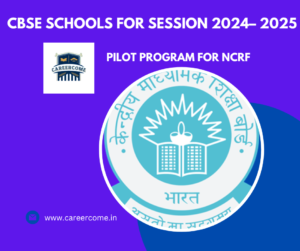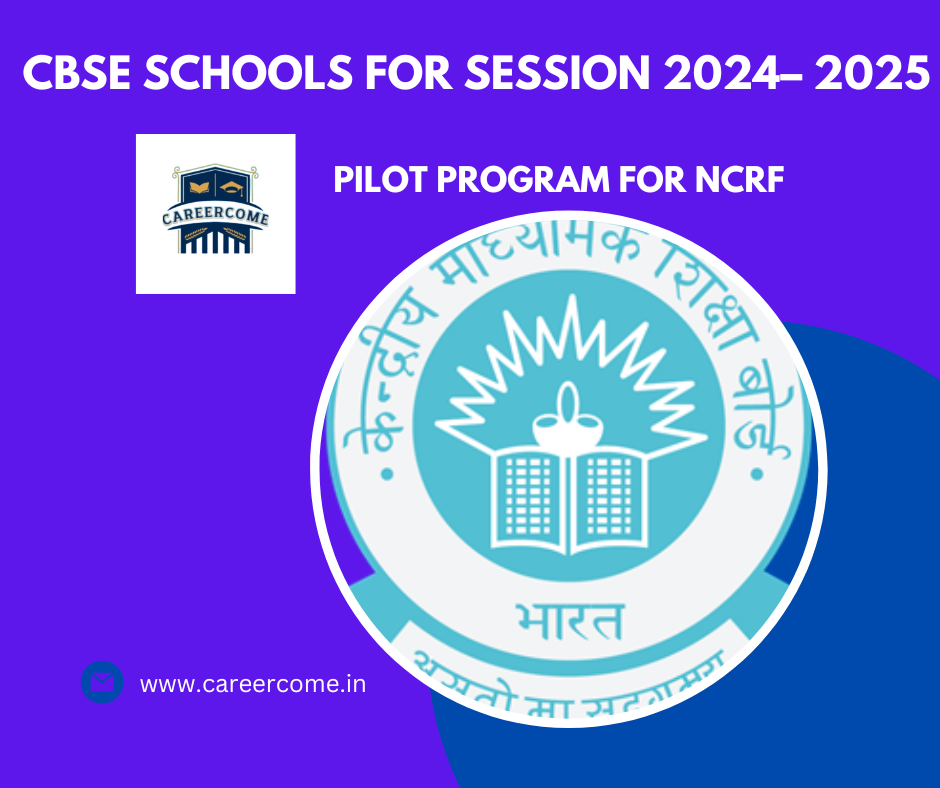The Central Board of Secondary Education (CBSE) has recently announced a significant step towards enhancing the educational framework in India. Starting from the 2024–2025 academic year, CBSE will implement a pilot program incorporating the National Credit Framework (NCrF) guidelines in selected schools. This initiative aims to revolutionize the current educational practices, focusing on a more holistic and flexible approach to learning.

NCrF Guidelines Overview
The National Credit Framework (NCrF) is a comprehensive set of guidelines designed to create a more inclusive and student-centric education system. It emphasizes the importance of skill development, continuous assessment, and personalized learning paths for students. By adopting these guidelines, CBSE aims to bridge the gap between theoretical knowledge and practical skills, preparing students for real-world challenges.
Objectives of the Pilot Program
The pilot program’s primary goal is to evaluate the feasibility and effectiveness of the NCrF guidelines in the CBSE curriculum. Key objectives include:
- Enhanced Learning Experience: Implementing personalized learning plans to cater to individual student needs and abilities.
- Skill Development: Emphasizing practical skills alongside academic knowledge to ensure a well-rounded education.
- Continuous Assessment: Moving away from traditional examination methods towards continuous and comprehensive evaluation.
- Holistic Development: Fostering the overall development of students, including their emotional and social skills.
Implementation Strategy
CBSE plans to roll out the pilot program in a phased manner, beginning with a select number of schools across different regions. The implementation strategy includes:
- Selection of Pilot Schools: Identifying and selecting schools that are well-equipped and willing to adopt the NCrF guidelines.
- Training Educators: Providing comprehensive training to teachers and school administrators on the new guidelines and teaching methodologies.
- Curriculum Integration: Gradually integrating the NCrF guidelines into the existing CBSE curriculum, ensuring a smooth transition.
- Monitoring and Evaluation: Regular monitoring and evaluation of the pilot program to assess its impact and make necessary adjustments.
Expected Outcomes
The successful implementation of the NCrF guidelines is expected to bring about several positive changes in the CBSE education system, including:
- Enhanced Student Engagement: More interactive and captivating learning experiences tailored to meet individual student needs.
- Higher Skill Proficiency: Students will develop essential life skills that are crucial for their future careers and personal growth.
- Reduced Examination Stress: Continuous assessment methods will alleviate the pressure of high-stakes exams, promoting a more relaxed learning environment.
- Balanced Development: A focus on holistic development will ensure that students grow academically, emotionally, and socially.
CBSE’s Commitment
CBSE’s commitment to enhancing the quality of education in India is evident through this pilot program. By adopting the NCrF guidelines, CBSE aims to create a more dynamic and inclusive education system that prepares students for the challenges of the 21st century. This initiative aligns with the broader vision of the National Education Policy (NEP) 2020, which advocates for a more flexible, multidisciplinary approach to education.

